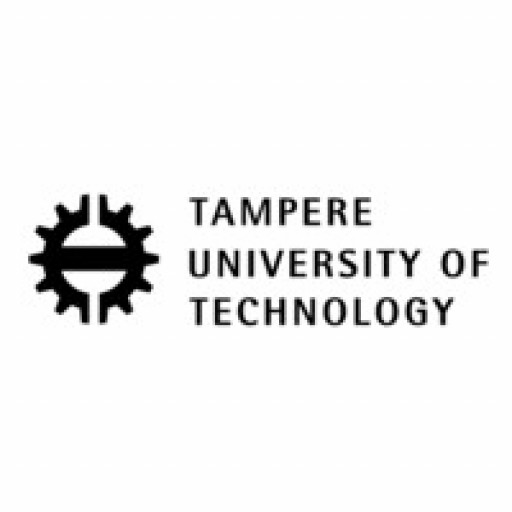Photos of university / #uniessex
The Bachelor of Science in Intelligent Systems and Robotics at the University of Essex offers a comprehensive and innovative curriculum designed to prepare students for the rapidly evolving fields of artificial intelligence, robotics, and intelligent systems. This degree program combines theoretical foundations with practical application, allowing students to develop a deep understanding of how intelligent systems operate and how robotics can be integrated into various industries. Throughout the course, students gain core knowledge in computer science, programming, control systems, machine learning, computer vision, and embedded systems, among other disciplines. The program emphasizes hands-on experience, enabling students to work on real-world projects and develop practical skills that are highly valued in the job market. Students will learn to design, build, and program autonomous robots, intelligent agents, and complex systems capable of operating independently and efficiently in dynamic environments. The program also encourages interdisciplinary learning, integrating insights from engineering, computer science, and cognitive science to foster innovative solutions. The coursework includes project-based assessments, laboratory work, and collaborative activities, preparing students for teamwork and problem-solving in professional settings. Graduates from this program are equipped to pursue careers in robotics engineering, AI development, automation, and research. They will be well-positioned to contribute to technological advancements across industries such as manufacturing, healthcare, transportation, and entertainment. The program benefits from the university’s strong ties with industry and research institutions, providing opportunities for internships, placements, and collaborations that enhance employability. With a focus on both theoretical knowledge and practical skills, the BSc in Intelligent Systems and Robotics aims to produce graduates who are innovative, adaptable, and ready to meet the challenges of the digital age.
The MSc in Intelligent Systems and Robotics at the University of Essex offers a comprehensive and forward-looking curriculum designed to equip students with the essential knowledge and practical skills needed to excel in the rapidly evolving fields of intelligent systems and robotics. This programme combines core topics in artificial intelligence, machine learning, control systems, and robotics engineering, providing students with a strong foundation in both theoretical concepts and hands-on application. Throughout the course, students will explore key areas such as autonomous systems, perception and sensor integration, robotic manipulation, and human-robot interaction, preparing them to tackle real-world challenges in industry, research, and technology development.
The programme is structured to facilitate experiential learning through laboratory sessions, project work, and teamwork, enabling students to develop proficiency in designing, programming, and deploying intelligent robotic systems. In addition to technical skills, students will also acquire critical thinking and problem-solving abilities, alongside an understanding of ethical considerations and the societal impact of intelligent technologies. The curriculum is designed to stay abreast of the latest advancements in the field, incorporating a variety of current research topics and industry practices.
Students will have access to state-of-the-art facilities and equipment, including robot laboratories and simulation software, to support their learning experience. The programme also emphasizes interdisciplinary collaboration, encouraging students to work across engineering, computer science, and related disciplines. Graduates of this MSc programme will be well-prepared for careers in robotics development, automation, artificial intelligence research, and related sectors. They will also be equipped to pursue further research or doctoral studies, contributing to the advancement of intelligent systems and robotics technology globally.
A minimum of lower second class (2.2) honours degree or equivalent in Computer Science, Engineering, or a related discipline. Prior knowledge of programming languages such as Python, Java, or C++ is desirable. Applicants are expected to demonstrate a strong interest in artificial intelligence, robotics, and intelligent systems. Work experience in relevant areas can be advantageous but is not a mandatory requirement. English language proficiency is required for international applicants, typically evidenced by IELTS or equivalent qualifications, with a standard minimum score of 6.5 overall and no sub-score below 6.0. Applicants may also need to submit a personal statement outlining their interest in intelligent systems and robotics, alongside references or academic recommendations. For some applicants, prior exposure to subjects like control systems, machine learning, sensor technologies, or automation can strengthen their application. It is recommended that applicants review the specific criteria listed on the university’s official admissions webpage, as requirements may vary depending on the applicant’s background and the year of application. In addition, applicants should prepare for potential interviews or additional assessments as part of the selection process. The program is designed to be accessible to students from diverse academic backgrounds, encouraging interdisciplinary approaches to intelligent systems and robotics. All applications should be submitted through the university’s online application portal before the deadline indicated on the official website. Important supplementary materials, such as transcripts and CVs, should be uploaded electronically, and any supporting documentation must be provided in accordance with university guidelines. Applicants are advised to consult the program's official prospectus or contact the admissions office for detailed and updated entry requirements.
The University of Essex offers a range of financing options for students enrolling in the Intelligent Systems and Robotics programme. Prospective students can explore various funding opportunities to support their studies, including government-backed loans, scholarships, and bursaries. In the UK, students may be eligible for the Student Loan Company (SLC) loans, which cover tuition fees and provide maintenance support for living expenses. International students are encouraged to seek scholarships specific to their country of residence or from the university's international scholarship schemes.
The university provides a number of merit-based scholarships for high-achieving applicants, which can significantly reduce the overall cost of the programme. These scholarships are awarded based on academic excellence, and some are renewable each year subject to maintaining the required standards. Additionally, the University of Essex offers bursaries for students from specific backgrounds or locations, helping to widen access to higher education.
Students are also advised to explore external funding sources such as governmental grants or industry-sponsored awards relevant to engineering, computer science, and robotics fields. Part-time work opportunities are available both on and off-campus, allowing students to supplement their income during their studies. The university’s Careers Service provides guidance on employment avenues, internships, and placements that may offer financial benefits.
Students should also consider the possibility of financing their studies through private loans; however, careful consideration should be given to the terms and interest rates involved. The university's financial aid office offers advice and support to help students navigate their options and apply for funding successfully. Overall, the combination of university scholarships, government loans, external funding opportunities, and part-time employment options can help students manage the costs associated with pursuing a degree in Intelligent Systems and Robotics at the University of Essex.
The MSc in Intelligent Systems and Robotics at the University of Essex is a comprehensive postgraduate degree designed to equip students with advanced knowledge and practical skills in the rapidly evolving fields of intelligent systems and robotics. The program provides an in-depth understanding of core concepts such as artificial intelligence, machine learning, autonomous systems, robot control, perception, and sensor integration. Through a combination of theoretical coursework and practical projects, students learn to develop intelligent algorithms and design robotic systems capable of operating in complex and dynamic environments.
Students will explore various aspects of robotics, including robot kinematics, dynamics, and localization, alongside emerging topics such as human-robot interaction, computer vision, and automation. The curriculum emphasizes the application of computational intelligence and robotic techniques to real-world problems across industries such as manufacturing, healthcare, autonomous transportation, and service robots. The program also fosters hands-on experience through laboratory work, robotics prototyping, and project-based assessments, enabling students to gain practical competence in programming, system integration, and testing.
The teaching team comprises experts in robotic systems, artificial intelligence, and automation, ensuring students learn from leading researchers in these fields. The university’s modern facilities support the program, including dedicated robotics labs equipped with the latest hardware and software tools. Students are encouraged to undertake independent research projects or collaborate with industry partners to solve practical challenges, enhancing their employability and readiness for careers in robotics, AI development, research, and consultancy.
The program may include opportunities for international exchange or internships, providing students with broader perspectives and real-world experience in global technological environments. Graduates of the MSc in Intelligent Systems and Robotics are well-positioned for roles in research and development, product design, system analysis, or further doctoral studies in related disciplines. The course aims to produce graduates who are innovative, technically proficient, and capable of contributing to advancements in intelligent systems and automation technologies that are transforming modern society.









